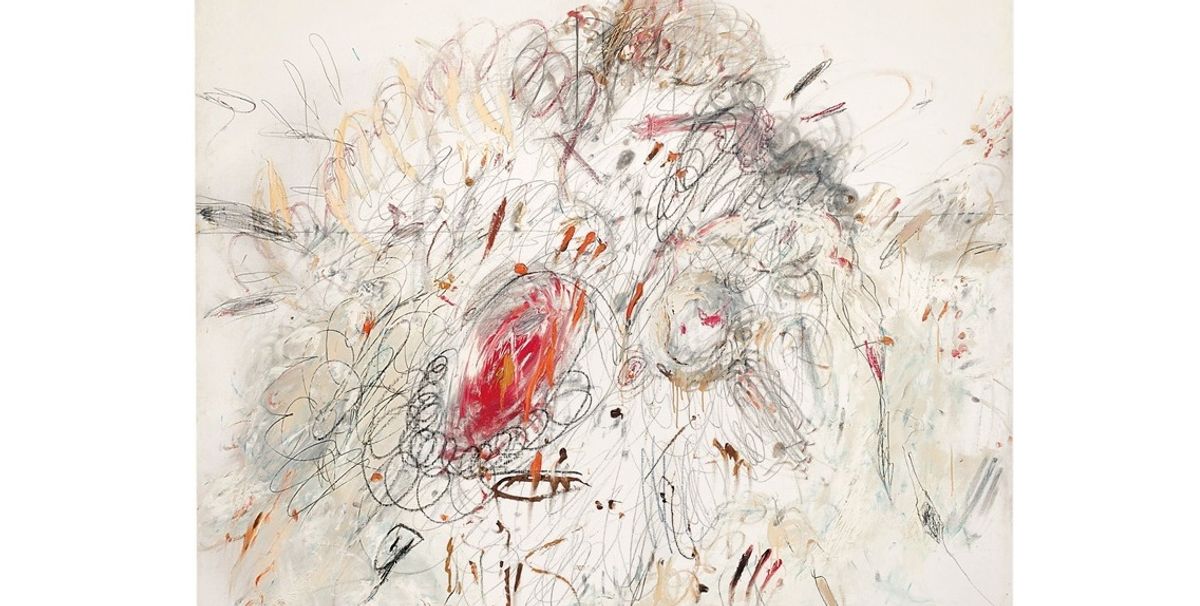Amidst fears of a lagging art market, Christie’s hammered down a solid post-war and contemporary sale Wednesday night that brought in $391,280,000 in hammer value ($448,062,000 with fees) and saw new records for Man Ray, David Salle, Robert Gober, Rudolf Stingel and Mark Grotjahn. “If we needed the proof of the strengths of the art market, we have it,” said Christie's new CEO Guillaume Cerutti at a press conference after the sale. “If we needed the proof of the strength of Christie’s, we have it. If needed the proof of the strength of our teams we have it.”
Heading into the auction, the estimates for the evening were $366.2m to $500.8m, so the total was actually closer to the low estimate, but just three of the 71 lots on offer were bought-in—discounting the two withdrawn right before the sale.
The evening’s top lot, Cy Twombly's loosey goosey Leda and the Swan (1962) saw spirited bidding on the phones, which became even more spirited after Larry Gagosian entered at $45m. “Yes Loic, I see him,” the auctioneer Jussi Pylkkänen told Loic Gouzer, who hurried to point out Gagosian from the phone bank. He snagged the work for $47m ($52.9m with fees).
It was a pleasant surprise in an evening that felt very predetermined, focused on proving the sustainability of the art market. Another was the interest in Andy Warhol’s Last Supper (1986), painted the year before the artist died, which hammered at $16.5m ($18.7m with fees), twice its high estimate, after a fight between at least five bidders, with the dealer Nicholas MacClean the underbidder. On the other hand, the sale of the Francis Bacon triptych Three Studies for a Portrait of George Dyer (1963), the first portrait of the artist’s longtime lover, actually went rather-by-the-books, with just three bidders raising the hammer price to $46m ($51.8m with fees) in three minutes.
There were even a few single bid lots in the top ten lots—the most curious of which was a $15.1m Christopher Wool that almost sold to a chandelier bid, until someone in the phone bank provided the $.1m—but after the sale attendees said they were heartened by the bidding they saw.
“You saw in the Bacon, the Twombly, the star pieces, [with a] very good depth of interest,” said Harry Blain, who founded the gallery (and later Christie’s subsidiary) Haunch of Venison. “You saw people coming in and coming to a reasonable level rather than going crazy. That’s good for the market and that's good for the artist.”
“The depth and variety of bids both in the room and from the phone banks proved that the market for special works by the most desired artists remains robust,” the advisor Benjamin Godsill concurred.


